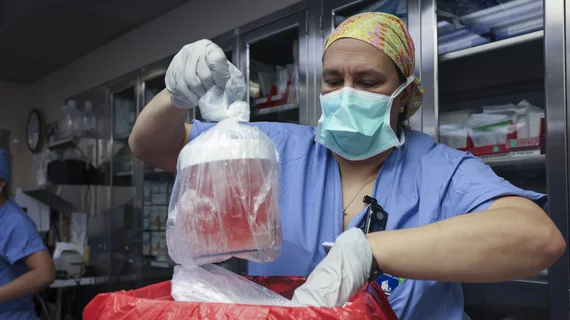Human patient receives first-ever pig kidney transplant
In a groundbreaking procedure, surgeons at Massachusetts General Hospital (MGH) in Boston have successfully transplanted a genetically edited pig kidney into a man living with end-stage kidney disease.
The historic and innovative xenotransplantation could offer hope to patients on hopelessly long organ donor waiting lists.
“The success of this transplant is the culmination of efforts by thousands of scientists and physicians over several decades,” Tatsuo Kawai, MD, PhD, director of MGH’s Legorreta Center for Clinical Transplant Tolerance and co-lead of the transplant team, says in a news release. “We are privileged to have played a significant role in this milestone. Our hope is that this transplant approach will offer a lifeline to millions of patients worldwide who are suffering from kidney failure.”
Rick Slayman, 62, of Weymouth, Mass., is this story’s “Baby Fae,” some observers remarked, referring to a newborn who received a baboon heart in 1984.
Slayman has type 2 diabetes and hypertension, common among chronic kidney disease patients. Slayman received a kidney transplant from a human donor in 2018—in a procedure also performed by Kawai—but the transplanted kidney showed signs of failure after five years and Slayman was forced to restart dialysis.
Days after the four-hour surgery on March 16, however, Slayman’s vital signs indicate he is tolerating the transplanted organ well and should be discharged soon.
“Applause broke out in the OR. It was quite an amazing experience,” recalls Winfred Williams, MD, associate professor of medicine at MGH and Slayman’s nephrologist, referring to the moment the kidney “immediately pinked up” during implantation.
The donor kidney was supplied by eGenesis, a Cambridge, Mass.-based biotechnology company co-founded by Harvard geneticists. Researchers used CRISPR gene editing to navigate a few potential barriers to cross-species transplantation, notably to delete three pig genes and insert seven human transgenes to mitigate chances of rejection. CRISPR was also used to deactivate retroviruses in the pig genome.
In total, 69 genetic edits were made to the pig, these modifications led to the procedure’s success. “Here, we’re dealing with a patient that’s relatively healthy, was a candidate for human kidney transplant, and just because of the current allocation, was never really going to get one. He was going to spend the rest of his life on dialysis,” says Mike Curtis, PhD, CEO of eGenesis, in an interview with WIRED.
Around 800,000 Americans suffer from kidney failure and more than 90,000 are on kidney donation waitlists, but only 25,000 kidney transplants are performed annually.
“It also represents a potential breakthrough in solving one of the more intractable problems in our field, that being unequal access for ethnic minority patients to the opportunity for kidney transplants due to the extreme donor organ shortage and other system-based barriers,” Williams points out. “This health disparity has been the target of many national policy initiatives for over 30 years, with only limited success. An abundant supply of organs resulting from this technological advance may go far to finally achieve health equity and offer the best solution to kidney failure—a well-functioning kidney—to all patients in need.”
The procedure was performed under a single FDA Expanded Access Protocol for compassionate use, intended only for an experimental treatment on one patient. Surgeons will consider Slayman’s transplant a success if he no longer needs dialysis, and hope it buys him a couple years of time to wait for another donated human kidney. Though if the procedure proves successful and leads to further clinical trials, it could benefit many more than just one patient.
“I saw it not only as a way to help me, but a way to provide hope for the thousands of people who need a transplant to survive,” Slayman says.

